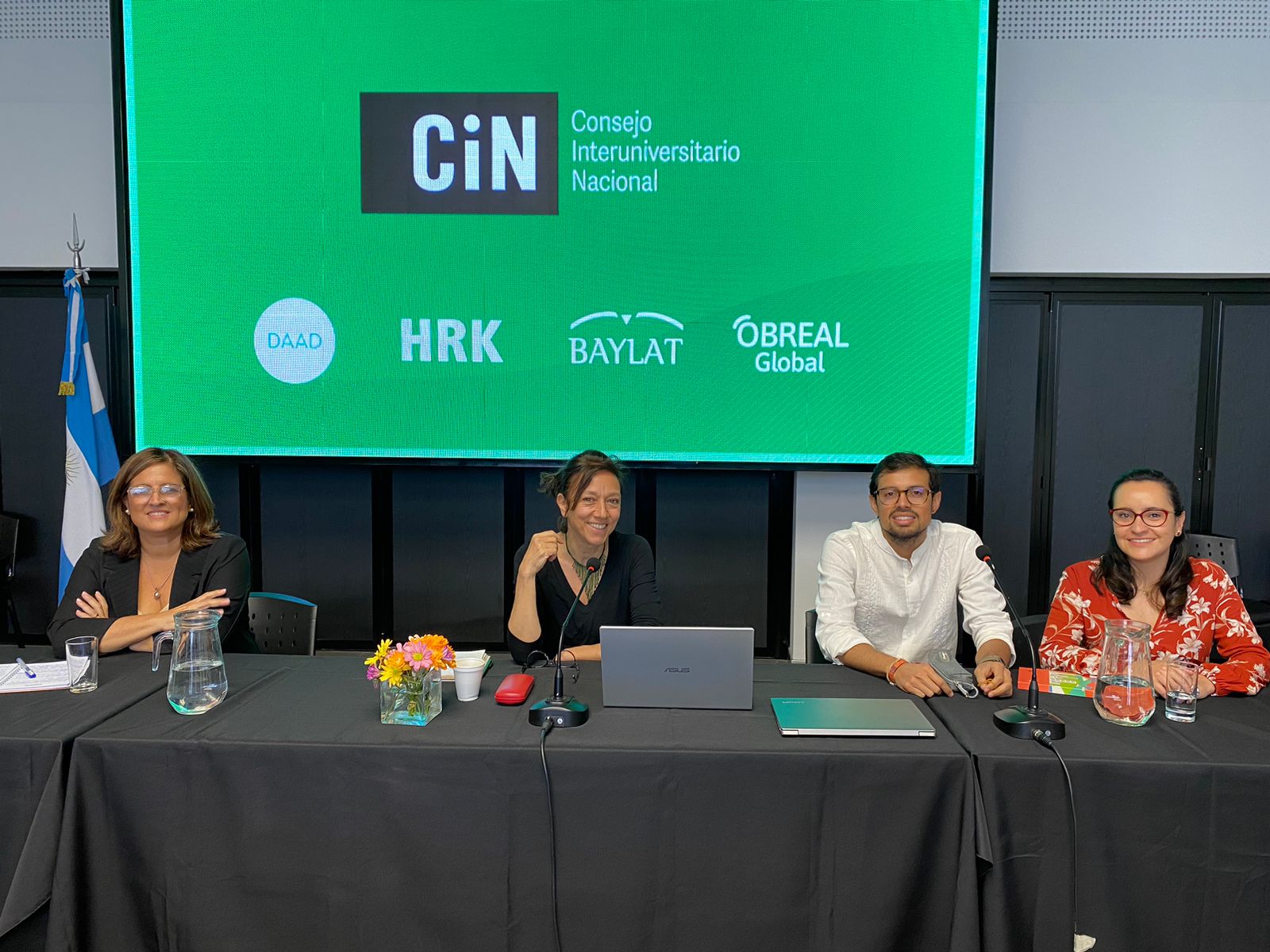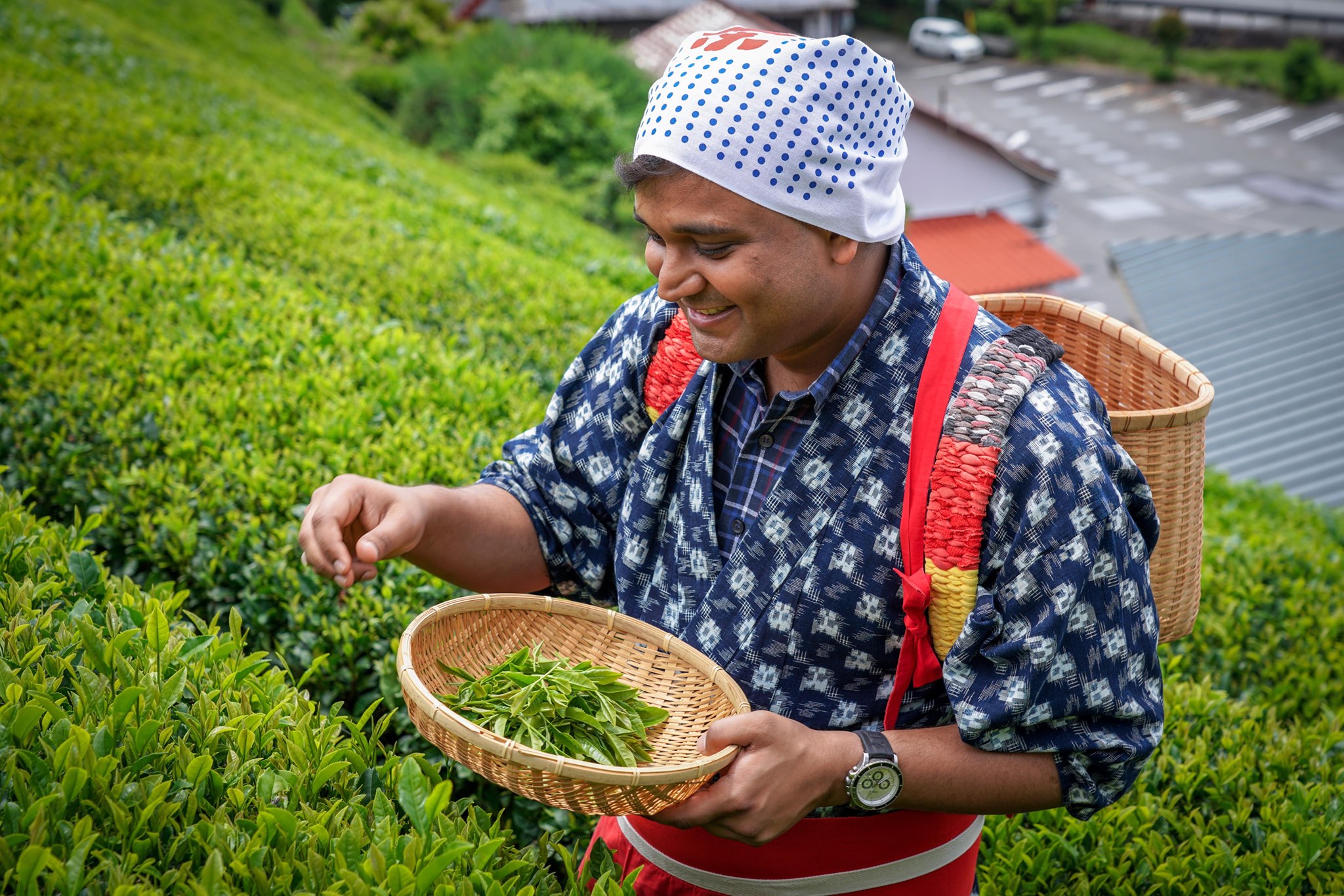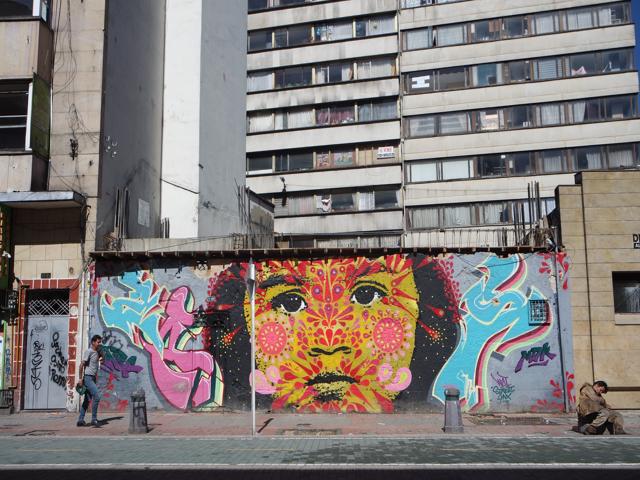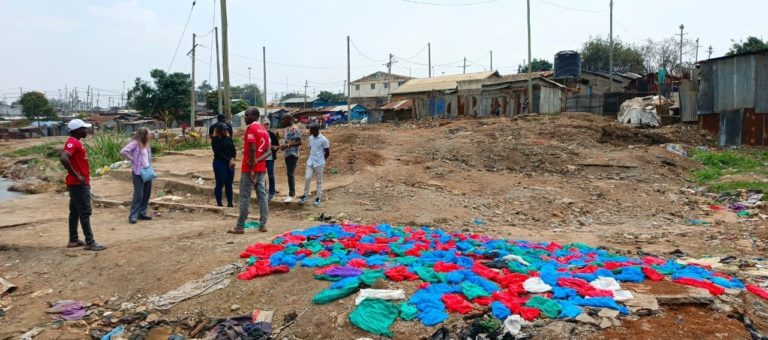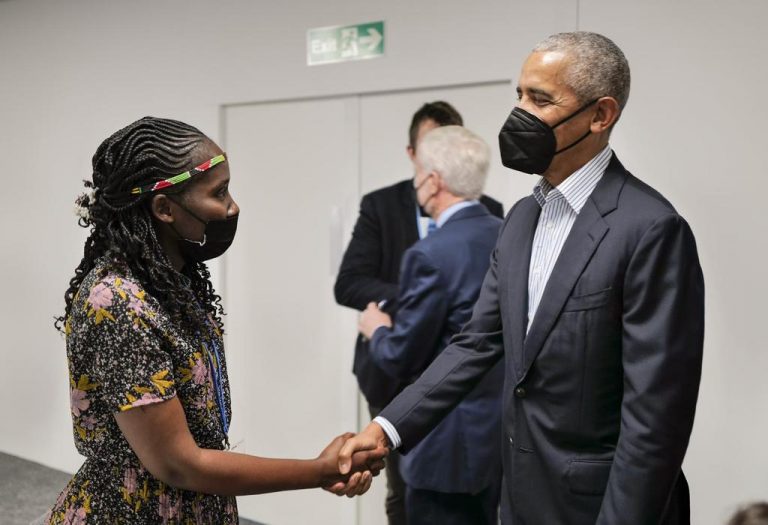Tackling South America’s environmental challenges by strengthening international academic cooperation
A delegation of the bilateral ZEF-led project Doctoral Studies Support Program (DSSP) paid a visit to their partners in Argentina from March 18-25, 2024. DSSP is based at ZEF and funded by the German Academic Exchange Service (DAAD) as part of their SDG Graduate School Program.
First stop was the conference “The challenges of the university system and internationalization“, taking place in Argentina’s capital Buenos Aires from March 20-22, 2024. The conference was organized by the Consejo Interuniversitario Nacional (CIN) of Argentina, DAAD, Germany’s Federal Rectors’ Conference (HRK), the Bavarian University Centre for Latin America (BAYLAT) and OBREAL Global. It was an alternative event to the originally planned but cancelled International Fair of Higher Education in Argentina (FIESA). The conference enabled more than 100 participants from Argentina, Germany, Mexico and Colombia to exchange experiences in the internationalization of higher education and cooperation and to strengthen current and potential future networks.
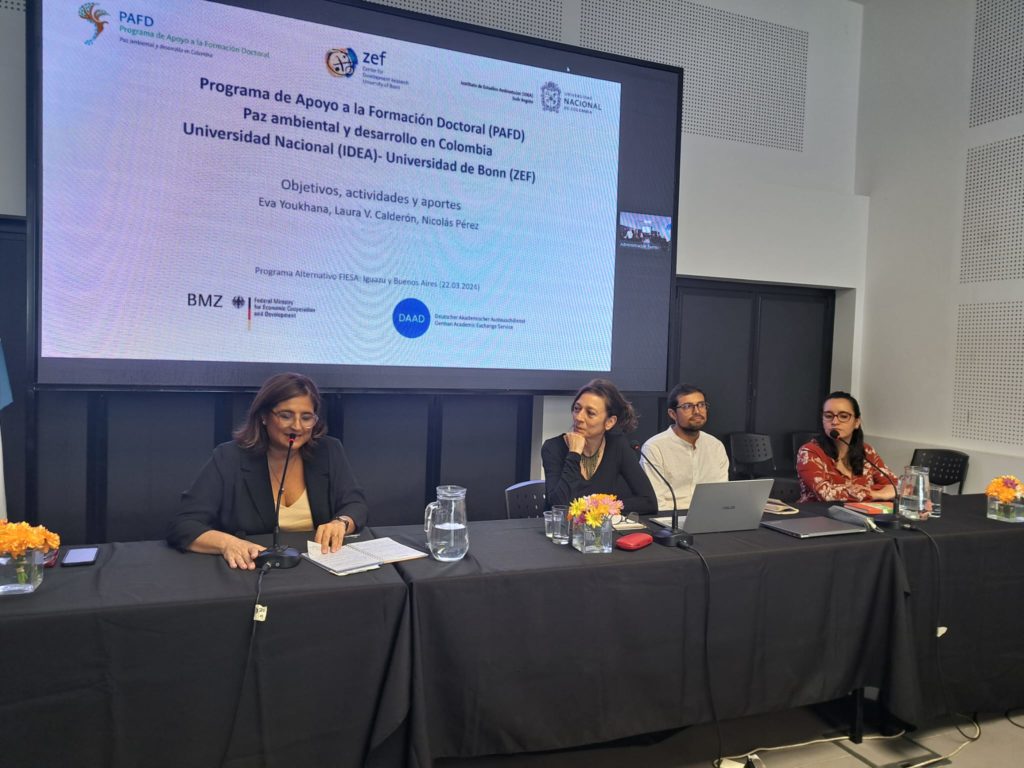
Programs with a long record presented their work – among them the German-Argentine University Centre (CUAA-DAHZ), OBREAL, University Network for Internationalisation in Teacher Education Cologne – Universität zu Köln (UNITE Cologne), the Latin American Academic Exchange Programme (PILA), and institutions such as the National Association of Universities and Higher Education Institutions (ANUIES) of Mexico, the Colombian Association of Universities (ASCUN) of Colombia, HRK, the CIN, and the DAAD.
Key issues of international academic cooperation
Key issues of international academic cooperation were discussed at a series of plenary sessions, including challenges and lessons learned from the COVID-19 pandemic. In this context, the role of digitalization in strategies for the internationalization of higher education, but also potential social limitations and exclusions emerging from remote learning came up. Other discussions evolved around the importance of building trust-based relationships, so international cooperation can generate impact. Impact can comprise facilitating comprehensive training of societal groups, improving the quality and digitalization of higher education and addressing future challenges of internationalization. Concrete challenges are designing joint curricula that give justice to the diverse epistemologies and forms of knowledge production and allocating credit points for a double degree.
Plenary session on challenges and lessons learned by DSSP
In a plenary session on Friday March 22, 2024 DSSP-team members PD Dr. Eva Youkhana (academic coordinator), Laura Victoria Calderón (academic coordination team) and Nicolás Pérez (leader of the Environmental Information System (SIAMI)) gave a presentation. They shared insights into the main activities and contributions of the joint bilateral research agenda and cooperation between the National University of Colombia (UNAL) and the University of Bonn over the past six years. They also talked about the challenges and results obtained so far from the consolidation of the DSSP open data information system, such as the integration of the SIAMI with the Observatory of Environmental Conflicts (OCA) in Colombia, and the upload of datasets from DSSP doctoral and master students as well as other environmental researchers from UNAL. The questions and response of the different universities and university associations showed a high interest in the work of DSSP.
Real-life environmental problems outside Argentina’s capital
In addition, the DSSP team visited several Argentinean academic peers to expand their collaboration networks and strengthen ties with Argentinean institutions outside the capital. Thus, an inaugural visit was paid to the facilities of the Institute of Subtropical Biology (IBS) of CONICET and the National University of Misiones (UNaM) in Puerto Iguazú on March 19. Professors Paula Tujague, Juliana Notarnicola, Carla Duarte (virtual participation) and researchers Fermín Chamorro and Yolanda Espejo gave an overview of the main environmental problems in the province of Misiones. These include the impacts of climate change on this bio-diverse region, including extreme weather events like flooding or drought periods, and the effects of tourism which can lead e.g. to over-exploitation of fresh water. They also discussed the challenges that universities in Argentina are facing and the importance of international cooperation in this context.
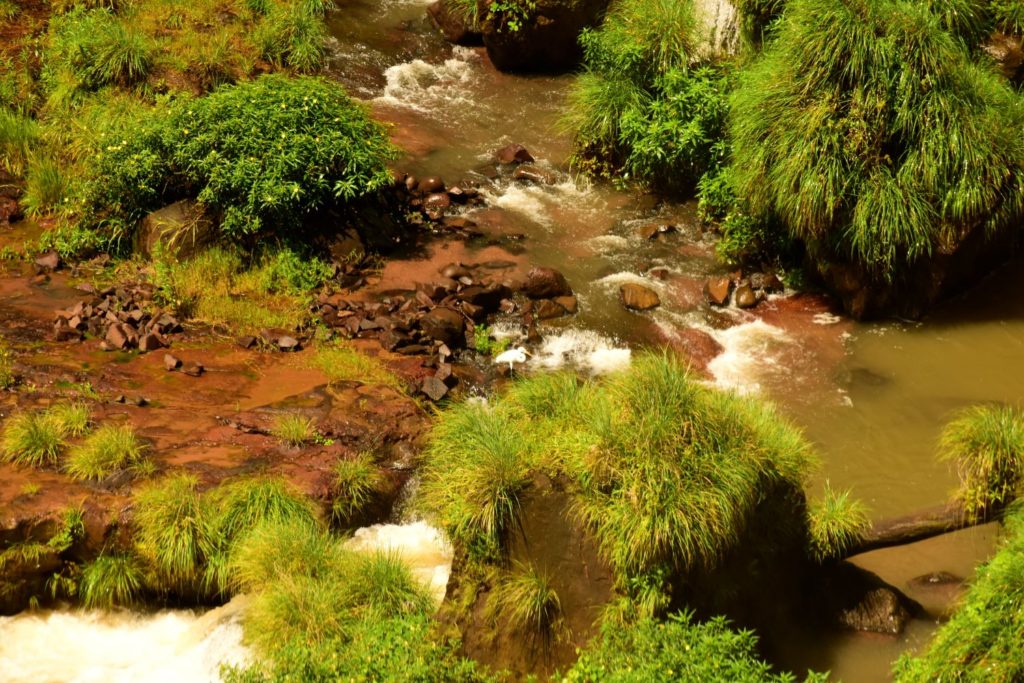
Next stop: Rosario
Subsequently, the DSSP-team visited the National Scientific and Technical Research Council (CONICET) in city of Rosario on March 25, together with doctoral researcher Francisco Preiti from the National University of Rosario. Preiti is running a cooperation project with ZEF on environmental conflicts and the protection of water resources in Argentina. During the visit the Institute of Environmental Studies (IDEA) of UNAL and the Observatorio de Conflictos Ambientales (OCA), which IDEA is operating, were introduced. Besides, approaches and perspectives on conflicts associated with islands or wetlands were discussed. These approaches included common concepts of analysis, but also those specifically developed for Rosario’s wetlands complex “Entre Ríos”. Conflicts over Rosario’s wetlands are mainly related to land tenure, the region’s predominant illicit, and the overlapping of biodiversity protection and ecosystem management instruments – added by the effects of natural dynamics and anthropogenic actions, mainly burning.
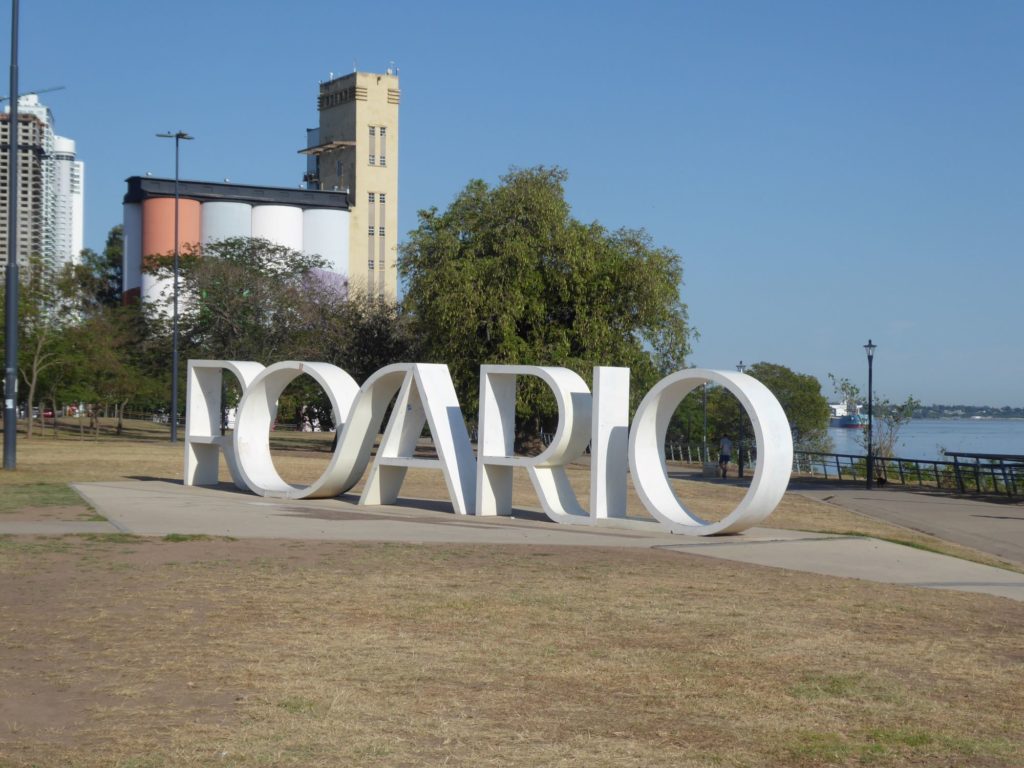
Read more about the environmental challenges in and around Rosario in the blog post Illegal arson and civil resistance in Rosario, Argentina (June 2023) by Eva Youkhana and Francisco Preiti.
Potential partners for broadening cooperation scope
Before leaving, the team was also able to visit the Library of the National Congress in Buenos Aires. The Library organizes projects to make better use of the rich historical archives and awards annual scholarships to allow greater access to this rich offer of studies, soon with an international focus. This would allow DSSP to include the library as a partner and co-finance the unit for international programs.
Finally, visits were paid to representatives of the Maria Sibylla Merian Centre for Advanced Latin American Studies (CALAS), as well as to Dr. Luciana Anapios and Dr. Lukas Christel, at the National University of San Martin (UNSAM) on March 26-27, 2024. Finally, the DSSP-team visited the headquarters of the National University of Comague (UNCo in Patagonia) in Buenos Aires. In Patagonia, environmental conflicts affecting the native populations, especially the Mapuche and Tehuelche, are a daily occurrence, so that future cooperation would also make sense here. One main topic on DSSP’s research agenda is environmental conflicts. So over the last years we have gained experience in projects that monitor these conflicts in a participatory way such as ColPaMon and the ASA Program with case studies in Colombia and Germany.
How future joint research could look like
By engaging with different academic settings in Argentina, the DSSP has been able to broaden its perspective for expanding their work with and in the country and has managed to outline topics of interest for future collaborations. These topics cover, for instance, the impact of extractive activities on local communities in terms of environmental degradation. It would also be interesting to see how these communities or local/district governments organize the restoration of degraded and destroyed landscapes. The role of women in movements defending natural resources could also be a topic of joint research.
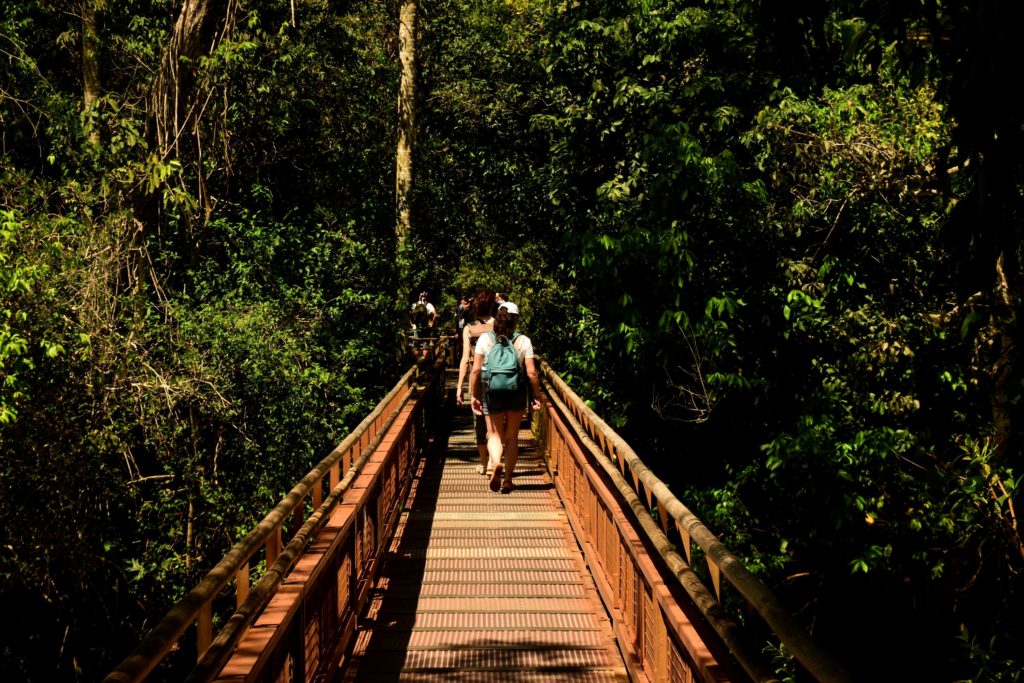
Discussions with different professionals linked to CONICET and various universities in the interior of the country contributed to the objective of critically analyzing the role of higher education in Argentina. Higher education institutions have been affected by the country’s multiple political and economic changes, hindering its progress and limiting their possibilities for action. However, it is necessary to advance and insist on its impact on societies and their territories. This is where international cooperation comes in and can play a key role in undertaking continuous efforts with regard to regions with multidimensional and complex challenges and facilitate the integration of different forms of knowledge and perspectives on development.
Authors: Laura Victoria Calderón (research assistant at the Institute of Environmental Studies, National University of Colombia (UNAL), Nicolas Alexander Pérez Forero (teacher at the Externado Universtiy of Colombia ) and Eva Youkhana (associate professor at the Center for Development Research at Bonn University (ZEF).
Photos by Nicolas Alexander Pérez Forero and Eva Youkhana
